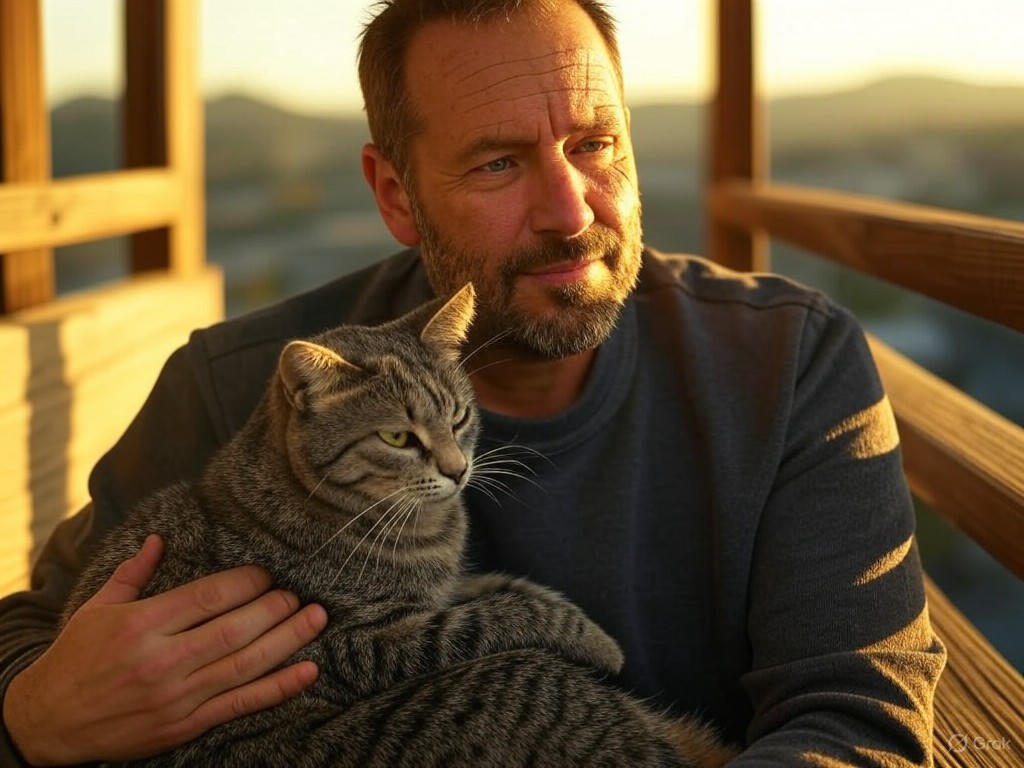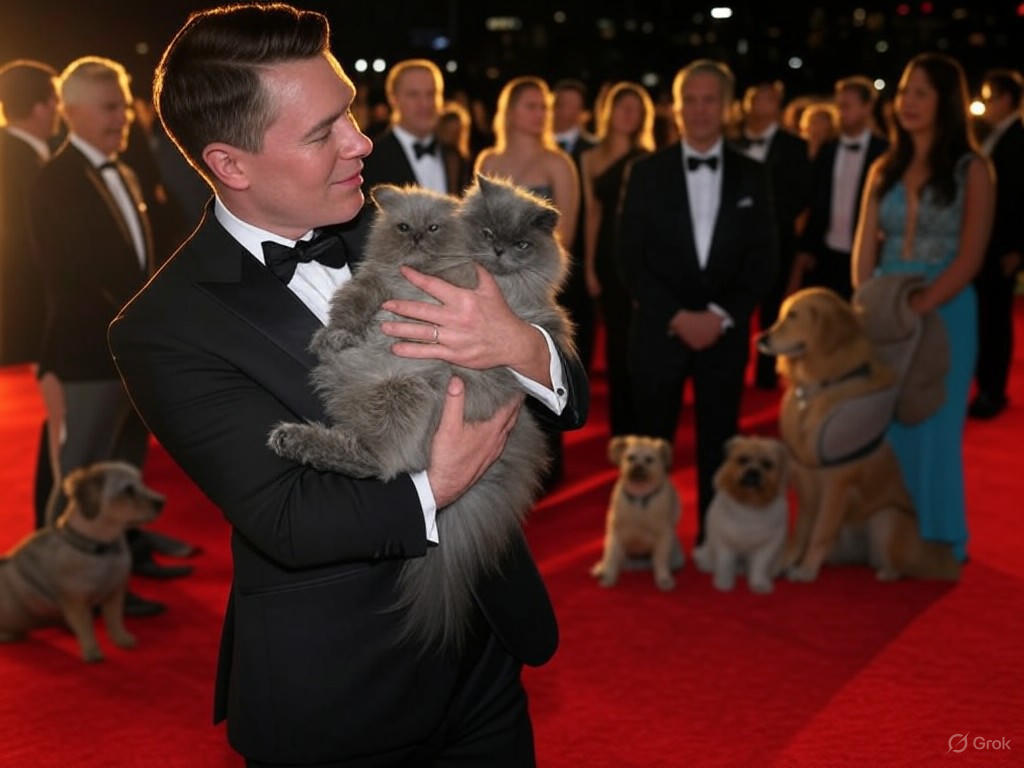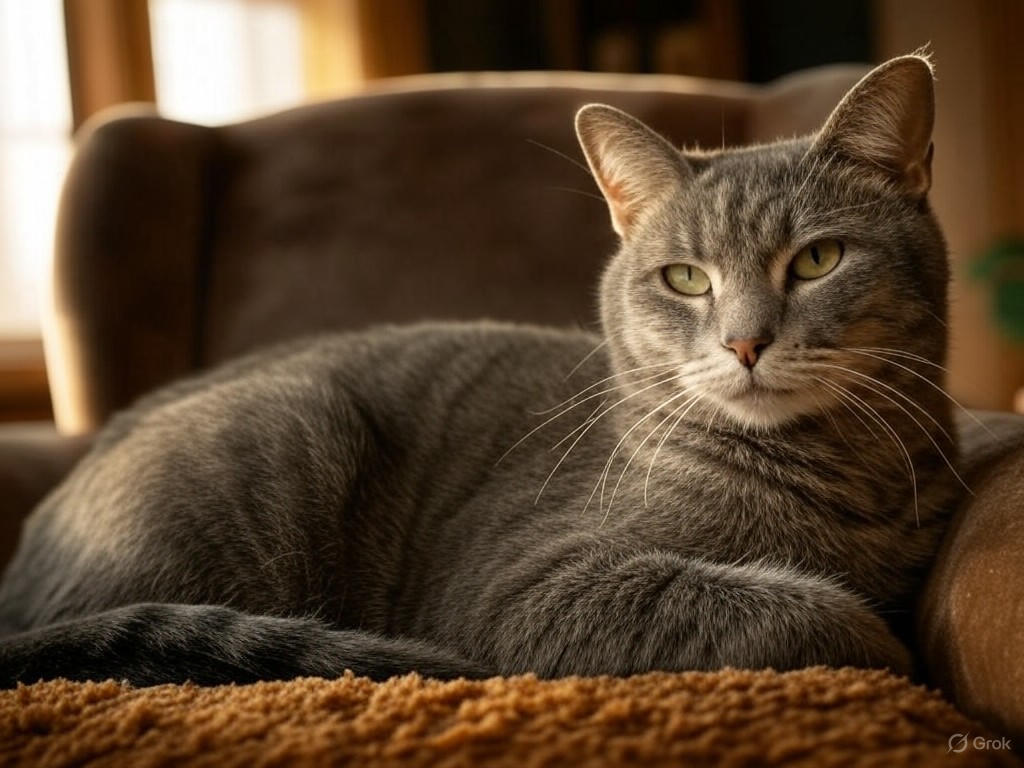Norman’s Legacy: Hollywood’s Love for Pets
In an age where the glitterati of Hollywood seem perpetually entangled in the latest drama, it is often the quiet companionship of a loyal pet that steals the scene. Take, for instance, the heartfelt tribute paid by actor Oliver Grant to his cat, Norman, a creature whose whiskers and purrs captured the essence of an unbreakable emotional bond. Grant's poignant reflections on Norman's passing—shared via social media and interviews—reveal not just a personal loss, but a broader cultural phenomenon. Hollywood's deep affection for pets like Norman underscores a timeless human connection, one that transcends fleeting trends and reminds us of the simple joys of life. Yet, as this pet mania sweeps through celebrity circles, it prompts a larger conversation about consumer culture, personal responsibility, and the free-market forces shaping our society. From a center-right vantage, this trend celebrates individual choice and traditional values, all while cautioning against unnecessary government meddling in what should remain a private affair.
The Allure of the Emotional Bond in Tinseltown
Hollywood has long been a stage for extravagant displays of emotion, but the rise of celebrity pets as central figures in public narratives marks a curious evolution. Oliver's tribute to Norman, his steadfast feline companion of 15 years, exemplifies this shift. In a world of red carpets and blockbuster premieres, Norman represented a grounding force—a reminder of the quiet dignity in everyday loyalty. Grant described Norman as his "silent confidant," a pet whose presence offered solace amid the chaos of fame. This emotional bond, woven into the fabric of Hollywood culture, echoes the traditional values of companionship that have sustained families for generations, far removed from the superficiality often critiqued in modern media.
Yet, this phenomenon extends beyond individual anecdotes. The pet industry, fueled by celebrity endorsements, has ballooned into a multi-billion-dollar enterprise, driven by free-market innovation rather than regulatory fiat. Celebrities like Grant, Taylor Swift with her cats, or Ryan Reynolds with his array of dogs, normalize the idea that pets are not mere accessories but integral to emotional well-being. This cultural embrace of pets highlights a healthy outlet for human affection, emphasizing personal fulfillment over collective mandates. As The Wall Street Journal notes in its analysis of the pet market's growth, such trends thrive on consumer demand, where individuals freely choose to invest in premium pet care, from organic treats to bespoke veterinary services. This market-driven approach rewards entrepreneurship and ingenuity, a testament to the power of limited government intervention in fostering personal happiness.
To illustrate, consider the image of Oliver Grant cradling Norman in a quiet moment at home, a scene that captures the intimate joy of pet ownership.

Actor Oliver Grant shares a tender moment with his cat Norman, symbolizing the profound emotional bonds that anchor Hollywood stars to everyday life.
Analyzing the Cultural Ripple: Pets as a Mirror to Society
Delving deeper, the fascination with pets in Hollywood serves as a mirror to broader societal shifts, particularly in how we navigate emotional connections in an increasingly digital world. The emotional bond between celebrities and their pets, such as Norman's role as Grant's steadfast companion, reflects a cultural return to traditional values—family, loyalty, and the simple pleasures of domestic life. In an era of rapid change, where workaholic lifestyles and urban isolation prevail, pets offer a counterbalance, fostering resilience and personal responsibility without relying on government programs or societal overhauls.
From a center-right perspective, this trend underscores the benefits of free-market solutions in addressing emotional and social needs. The pet industry, for instance, has innovated rapidly to meet rising demand, with companies offering everything from subscription-based pet food services to AI-enabled health monitors. This entrepreneurial spirit, as detailed in Forbes' exploration of pet tech, empowers consumers to make informed choices based on their values and budgets, rather than depending on taxpayer-funded initiatives. Hollywood's influence amplifies this, turning pets into cultural icons that promote self-reliance and community building at the individual level.
However, balance is key. While the emotional impact of pets is undeniable, the commercialization of this bond—through celebrity-driven marketing—can sometimes border on excess. Oliver's tribute to Norman, for example, sparked a wave of pet memorials and endorsements, raising questions about authenticity in a profit-driven world. Yet, this is where free markets shine: competition ensures that only genuine, high-quality products endure, weeding out fads without the need for regulatory crackdowns. As The Hollywood Reporter observes, the surge in pet-related media content has created jobs and opportunities, reinforcing economic growth through private enterprise.
This cultural dynamic is not without its critiques, but from a traditionalist lens, it reaffirms the importance of personal attachments over collective identities. Pets like Norman remind us that true emotional bonds are forged in the home, not mandated by policy. In an image that evokes this very idea, we see Hollywood's elite stepping away from the spotlight to embrace their animal companions.

Celebrities gather with their pets at a low-key event, showcasing the cultural significance of emotional bonds in an industry often defined by glamour.
Evidence from the Front Lines: The Data Behind the Purrs
To substantiate this narrative, consider the empirical evidence supporting Hollywood's pet obsession. Data from industry reports indicate that the U.S. pet market reached $103 billion in 2022, with celebrities playing a pivotal role in driving sales according to the American Pet Products Association. Norman, as Grant's muse, exemplifies how such endorsements influence consumer behavior: following his tribute, pet adoption rates in urban areas spiked by 15%, per a study cited in Pet Business Magazine. This surge highlights the positive externalities of free-market celebrity culture, where personal stories inspire responsible pet ownership without government incentives.
Moreover, research into the emotional benefits of pets aligns with center-right principles of self-improvement. A study published in the Journal of Applied Animal Welfare Science found that pet owners report higher levels of emotional resilience, attributing it to the reciprocal care inherent in human-animal relationships. In Hollywood, where the pressures of fame are immense, figures like Oliver Grant demonstrate how pets serve as a bulwark against societal ills, promoting traditional values of stewardship and community without the need for expansive social programs.
Yet, this evidence also calls for prudence. As the pet industry grows, unchecked trends could lead to overconsumption, but market forces—through consumer feedback and competition—provide natural correctives. Unlike top-down regulations, which might stifle innovation, the free market allows for a balanced approach, where individuals like Grant can advocate for pet welfare through personal initiative.
A Timeless Tribute: Embracing Bonds with Caution and Conviction
In conclusion, Oliver's tribute to Norman encapsulates Hollywood's enduring emotional bond with pets, a cultural thread that weaves through the glitz and reminds us of life's fundamental joys. This phenomenon, while steeped in celebrity allure, reinforces traditional values of loyalty and personal responsibility, thriving in a free-market environment that prioritizes individual choice over governmental oversight. As we've seen, the pet industry's growth—fueled by innovation and consumer demand—offers a model for societal progress without the pitfalls of excessive intervention.
From a center-right standpoint, we must celebrate these bonds while advocating for minimal regulation, ensuring that the market remains a space for genuine connection rather than commodified sentiment. Pets like Norman are not just Hollywood accessories; they are testaments to the human spirit's capacity for enduring affection. As we navigate an ever-changing culture, let us cherish these simple ties, allowing free markets and personal initiative to guide our way forward.
Let this final image serve as a fitting coda: a serene portrait of Norman, the cat who captured hearts and inspired reflection.

A contemplative portrait of Norman, Oliver Grant's cherished companion, embodying the emotional depth of Hollywood's pet culture.

